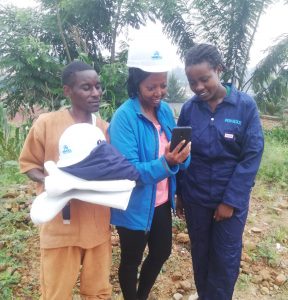Why digital payments?
Digital payments have been transformative in many industries and countries in the world. The Better than Cash alliance states that with digital payments there is a 47% reduction in incidents of corruption. Whilst bottom-of-the-pyramid workers benefit from financial inclusion that results in a 21% increase in output. Given this many countries have targets for digital payment introduction – Rwanda has plans to be cashless by 2024 and digital payments are currently at 34.6% of GDP in 2019, up from just 0.3% in 2011.
Why the mineral sector?
Artisanal mineral sourcing is one of the most unsophisticated markets in the World. It is common to see middlemen ‘negociants’ being given $50,000 in hard cash in advance in the city, travelling for 12 hours through rural areas on motorbikes to the mine sites to buy the minerals. Not only is this not safe but it is inefficient. At any point the money risks funding conflict or child labour and there is little visibility or accountability of the middle man’s actions – this is a clear risk against EU’s mineral law.
Covid-19 accelerates digital payment uptake
Covid-19 has caused digital payments to grow 5-fold in Rwanda in 3 months. The virus can be transmitted on hard currency so moving to digital currency has health benefits. Secondly, there is currently a large liquidity challenge in Eastern DRC. Hard cash in USD is normally flown in from Kinshasa (DRC capital in West) to Goma (main city in East) and distributed to banks. This money is then withdrawn and makes its way to the mine sites via the aforementioned middlemen. With little hard cash the mineral trade has ground to a halt in many sites.
Minexx rolling out digital payments in Eastern DRC
Minexx has completed the first export of minerals from DRC with digital payments certified on the blockchain. Minexx are now working with concession owners, NGOs and mineral purchasers to further roll out the MineSmart platform.
Get in touch at [email protected] to learn more.






